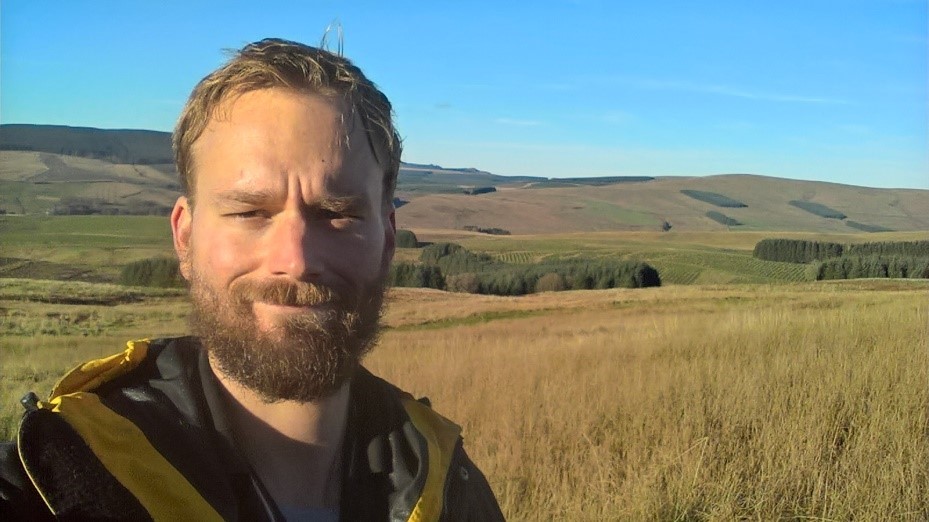Tilhill Forestry’s Richard Hartley has decided on a career change by leaving his role as forest manager to become a harvesting manager instead. He has now joined the Company’s Southern England team after moving from Jedburgh, Central Borders.
Richard joined Tilhill Forestry in 2016 after serving in the British Army for over 10 years. He then went on to complete a Postgraduate diploma in Forestry Management at Harper Adams University.
He was been heavily involved with the implementation of woodland creation projects and is an Associate member of the Institute of Chartered Foresters currently working towards his Professional Membership Entrance.
We spoke to Richard to find out his thoughts about his move and new job role within the company.
What is your job role now within Tilhill Forestry?
As a Harvesting Manager I am responsible for purchasing standing and roadside timber, liaising with customers in local markets to identify and meet their demands and organising haulage of timber products to the correct destination. The aim is to supply customers with quality British grown timber products, while ensuring optimal value for the landowner.
When timber is felled, I act as the Forest Works Manager, which means that I ensure all relevant operations are properly planned in conjunction with the landowner and contractor. This role includes the selection of competent contractors, compilation of accurate and relevant risk assessments and monitoring of all operations on site.
What were your expectations about harvesting coming from a forestry background? What has surprised you?
I started my career as a Forestry Manager in Scotland. Although there was a variety in the work, I was often working on big commercial forests, so have gained significant experience of supervising harvesting operations. In order to become a more complete forester, I wanted to better understand harvesting interventions and their role in well-managed woodlands. I expected the work to have a strong commercial focus and this has been borne out so far. The most surprising aspect is the number of different markets and customers a harvesting manager needs to market timber from a mixed woodland. Products from a single harvesting job can go into construction products, fencing, and pallets, equestrian products, private firewood and commercial biomass and hardwood furniture. The nature of mixed woodlands in the South of England can be a challenge in this respect.
What do you do? Tell us about your typical day.
This job is very varied, so there isn’t really a typical day. Tasks include assessing a job for hazards and constraints, operational H&S requirements and potential market value; site supervision to monitor operational safety and product quality; meeting potential customers, and organising distribution.
What do you like most about working in this industry?
If you like working outside, have a passion for woodlands and nature and understand the value of woodland management, then I would recommend a career in Forestry. Harvesting in particular requires problem-solving skills and is very fast-paced. It can be a very rewarding challenge. I particularly like seeing the positive impacts that thinning can have on a stand of trees.
Why did you decide to work for Tilhill Forestry?
Tilhill Forestry offers its employees excellent training opportunities and a good environment to develop experience and knowledge. Initially, I chose to work in Scotland, where conditions for forest operations are very different. The scale of operations enabled me to experience a range of work activities vital to forest establishment and management. The move south opens up a wider range of possibilities in woodlands based on more species variation. As a harvesting manager, it is very interesting to see how well-judged thinning can produce a high-quality final crop.
I really enjoy working in forestry, particularly spending time outside in the woods. Tilhill Forestry has always encouraged me to spend time outside, which helps to plan operations properly and ensure quality and safety.
Have a question for Richard? Contact richard.hartley@tilhill.com



